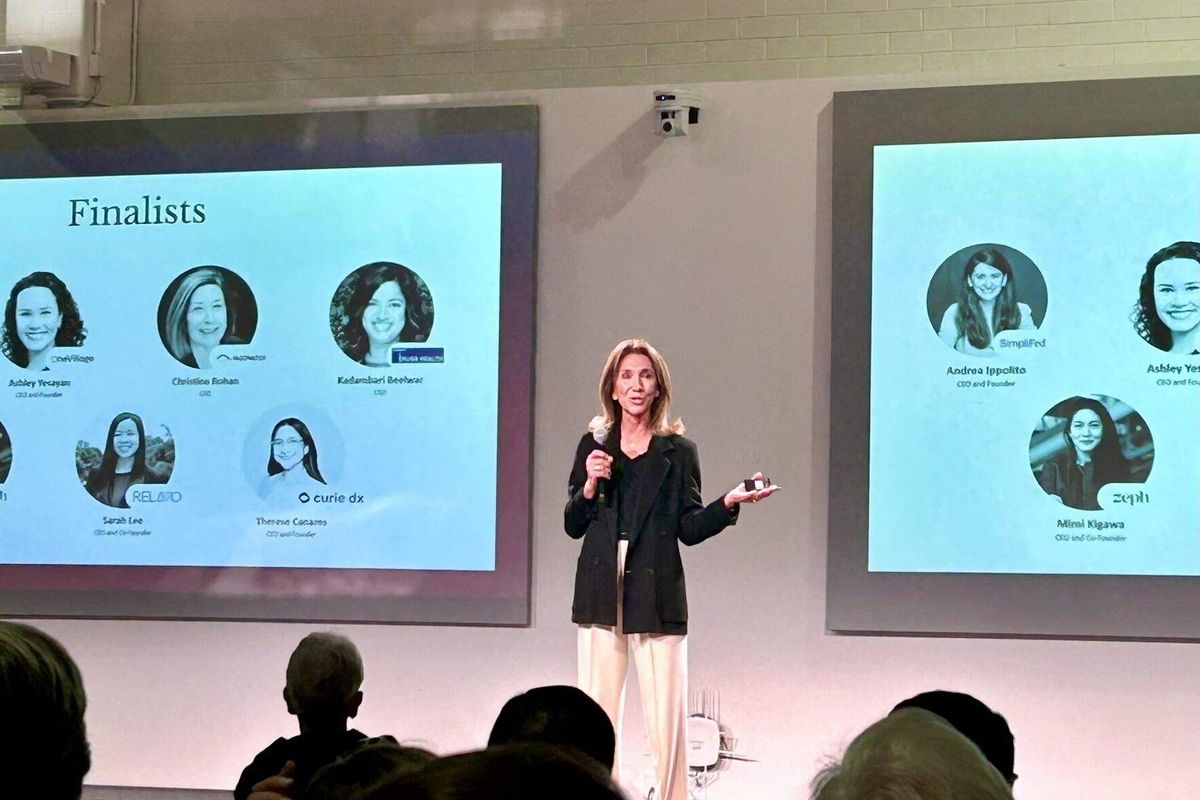Editor's note: Every week, I introduce you to a handful of Houston innovators to know recently making headlines with news of innovative technology, investment activity, and more. This week's batch includes three innovators across health care innovation.
Tom Luby, director of TMC Innovation

Texas Medical Center Innovation won a Prix Galien Award, which has been described as being comparable to the Nobel Prize for the life science community. Photo by Natalie Harms/InnovationMap
Last month, a global organization honored innovation leaders in life sciences, and the Texas Medical Center was among the recipients of the prestigious awards program.
The 18th annual Prix Galien Awards Gala awarded TMC Innovation with the win in the "Incubators, Accelerators and Equity" category. The Galien Foundation created the awards program in 1970 in honor of Galien, the father of medical science and modern pharmacology. Alongside TMC, the other winners represented biotech, digital health, startups, and more.
"We are super proud of this distinction," Tom Luby, director of TMC Innovation says at Envision 2024 last month, crediting the TMCi team and TMC leadership for the award. "We lean on a lot of advisers and experts — people who volunteer their time to work with startups. Without (them), we would not have been successful." Continue reading.
Ayse McCracken, founder of Ignite Health

A Houston organization that accelerates and supports female founders leading innovative health tech startups has concluded its 2024 program with the announcement of this year's top companies.
Ignite Health, an accelerator founded in 2017 by longtime Houston health care professional Ayse McCracken, named its 2024 winners at its annual Fire Pitch Competition in Houston last month. The companies pitched health tech solutions across lung health, renal therapy, breastfeeding tech, and more.
"This year’s competition was a culmination of passion, innovation, and hard work from the top startups in our 2024 Accelerator Program," reads a LinkedIn post from Ignite. "These trailblazing founders earned their spot on the stage by demonstrating exceptional leadership and the potential to revolutionize the healthcare industry with their solutions and devices." Continue reading.
Chris DuPont, co-founder and CEO of Galen Data

Houston-based Galen Data, a provider of cloud-based connectivity software for medical devices, has been acquired. Photo via LinkedIn
Houston-based Galen Data, a provider of cloud-based connectivity software for medical devices, has been acquired by health care-focused asset manager Lauxera Capital Partners. Financial terms weren’t disclosed.
Lauxera, based in France, says the Galen Data acquisition complements its 2022 purchase of Germany-based Matrix Requirements, a provider of software for medical device R&D and quality control teams.
Chris DuPont, co-founder and CEO of Galen Data, says the Lauxera deal “empowers us to take our business to the next level and better serve our clients while pushing forward the innovation that’s at the core of everything we do.” Continue reading.


 Apple doubles down on Houston with new production facility, training centerPhoto courtesy Apple.
Apple doubles down on Houston with new production facility, training centerPhoto courtesy Apple.





